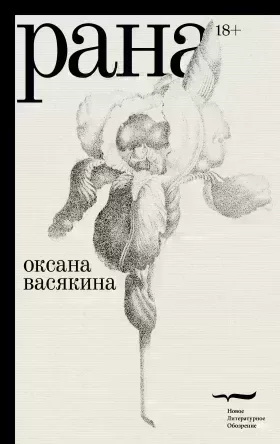Read in: Русский (Russian)

Рана (Wound)
Оксана Васякина
Новое Литературное Обозрение, 2021
Toward the end of Russian poet Oksana Vasyakina’s debut novel Rana (Wound), the protagonist, also called Oksana, returns to Ust-Ilimsk, the Siberian city where both author and protagonist grew up. The city, « a small end-of-the-line city in the taiga », was constructed in the 1960s around a hydroelectric dam and power station— « monuments », she calls them, « to the Soviet colonization of nature and old ways of living ». She looks deep into the reservoir, wondering about the pre-Soviet town flooded below, about its church and long-gone lifeways.
« Space », or prostranstvo, is one of the key words for understanding the literary and philosophical history of Russia. It’s most commonly directed at the country’s southern steppes—what the poet Osip Mandelstam called the « watermelon emptiness » of Russia—and at the taiga, the swampy coniferous forests of Siberia. But it can carry the weight of the whole country, if not the whole Russian psyche. « What does this immense expanse portend? » Nikolai Gogol’s narrator asks in Dead Souls. « Is it not here, in you, that some boundless thought should be born, since you yourself are without end? »
…
Rana is a poet’s novel, structured like « a pebbled dropped into water ». It is concerned less with plot than with images. And the narrative digresses into essays about gender, sexuality, and literature, citing and analyzing a constellation of Russian and international writers, mainly women: poets Anna Barkovа, Anna Alchuk, and Polina Barskova (who contributes a foreword to the book), artist and writer Elena Guro, Korean novelist Han Kang, French theorists Luce Irigaray and Monique Wittig, Virginia Woolf. Together, these forays read like a primer on feminist thought for readers with Pushkin in their veins.
This article is behind the paywall. Want to keep reading this article?
Subscribe to the European Review of Books, from as low as €4,16 per month.
Already a subscriber? Sign in
- This translation appears in Kåre Johan Mjør, “Berdiaev and the Boundless Spaces of Russia,” Nordlit 39, 2017. ↩︎
- Oksana Vasyakina, <u><a href=”https://www.nplusonemag.com/online-only/online-only/these-people-didnt-know-my-father/” target=”_blank” rel=”noopener noreferrer”>« These people didn’t know my father »</a></u>, n+1, 2 October 2020. ↩︎
- quoted in Philip Fradkin’s biography Wallace Stegner and the American West (University of California Press, 2009). ↩︎